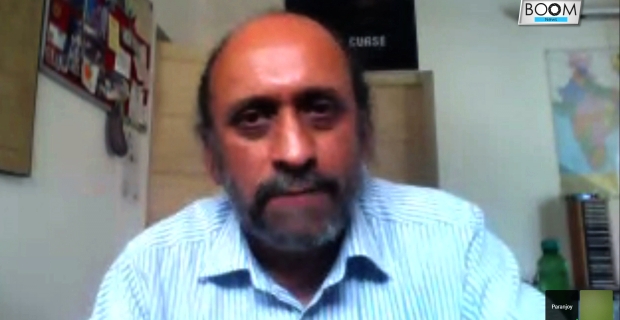
So, here is the million dollar question? Who runs the politics of the country? The politicians or the media - print/television/internet?
The debate is relevant since Elections 2009 saw parties spending close to Rs 2,000 crore. And the spending for Elections 2014 is expected to go up to Rs 6,000 crore by various political parties.
Boom News's show #TheIndiaHangout gets Govindraj Ethiraj in conversation with two veteran journalists - Kumar Ketkar and Paranjoy Guha Thakurta - and the question is: Is the media being manipulated?
And the conclusion is startling: Media or media persons are "controlled" and there is huge pressure to tow certain lines in coverage.
As Thakurta says: "I am surprised to see the main opposition party - the Bharatiya Janata Party (BJP) - outspending the Congress which has been in power for 10 years."
So, is there organisational manipulation while covering politics and elections or is it individual manipulation? The feeling, overall, is a bit of both.
Ketkar says that apart from the 'sleeper cells' in the media, 400,000 people are working for BJP and its Prime Ministerial candidate Narendra Modi. "And remember, they are all paid," Ketkar says.
Ketkar is blunt when he says BJP is more efficient in manipulating the media. "BJP believes that media can actually control the message," says Ketkar.
He feels strongly that public memory is not short "but the media does not offer referential material and it is their memory that is short."
Paranjoy says that "more often than not, he who pays the piper calls the tune." He also feels that politicians realise that media helps but only up to a point and ordinary voters are not fools.
Ketkar says BJP is spending close to Rs 50,000 crore this year on ad campaigns. " If the media is so powerful and after spending so much money on campaigning, BJP should get all the 543 seats," Ketkar says. And Paranjoy adds: "sometimes, we overestimate our reach/power."
Ketkar is vocal when he says that media operates in the vaccum between politicans and the common man. "More the gap, more the power of the media. And direct contact with people is far more influential than media coverage."